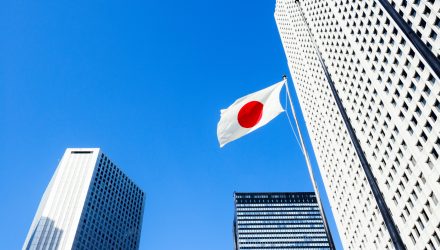Amid the trade scuffle between the United States and China, Japan is now stepping into the fold as Japanese Prime Minister Shinzo Abe is having discussions with U.S. President Donald Trump regarding trade, which could positively impact the Direxion Daily Japan Bull 3X ETF (NYSEArca: JPNL). Thus far, the discussions kicked off on a positive note as the two leaders met in New York on Sunday ahead of the ongoing trade dialogues between the two countries schedules to occur this week.
Japanese Prime Minister Shinzo Abe mentioned that trade talks were constructive with U.S. President Donald Trump in New York on Sunday ahead of the second round of trade dialogues between the two countries this week.
“I will continue discussions on trade with him in our summit after economy minister Motegi and U.S. Trade Representative Robert Lighthizer meeting,” Abe told reporters.
Related: Japan ETFs Brush Off Escalating Trade War Fears
The top trade negotiators of both countries, Japanese Economy Minister Toshimitsu Motegi and U.S. Trade Representative Robert Lighthizer, will hold a second round of trade talks today. A continued flow of positive news could help rally JPNL, which is down 13.72% year-to-date, but up 13.46% the past 12 months.
The JPNL ETF seeks daily investment results equal to 300% of the daily performance of the MSCI Japan Index. The index itself is designed to measure the performance of the large- and mid-cap segments of the Japanese equity market, covering approximately 85% of the free float-adjusted market capitalization of Japanese issuers.
U.S.-China Talks Stall
The Dow Jones Industrial Average began the week’s opening session stumbling as it fell over 150 points due to trade negotiations between the United States and China stalling. In addition, the new tariffs imposed by China took effect today as both economic superpowers don’t appear to be relenting in this ongoing trade dispute..
“One of the bigger risks with these tariffs going into effect is that the United States may be pushed out of the Chinese market and it is a growing market,” said Scott Brown, chief economist at Raymond James in St. Petersburg, Florida.








